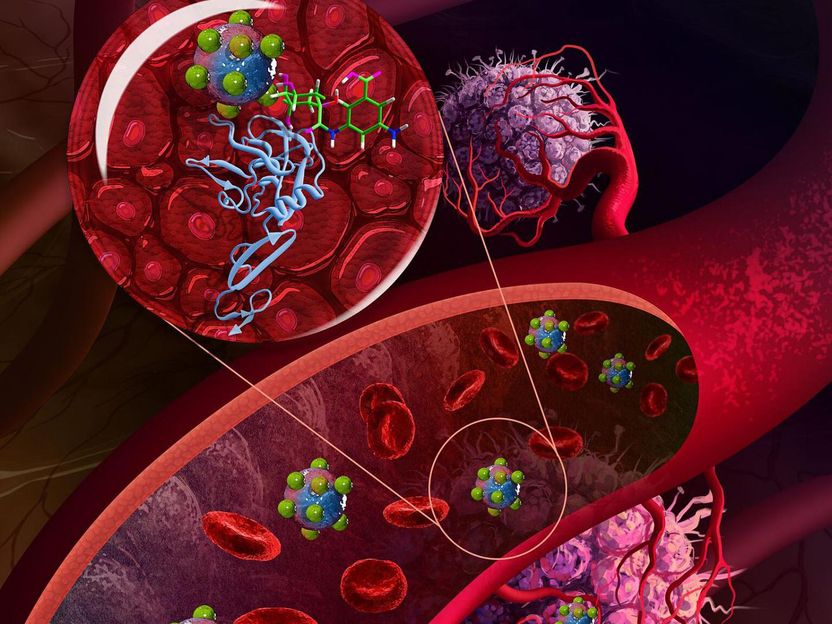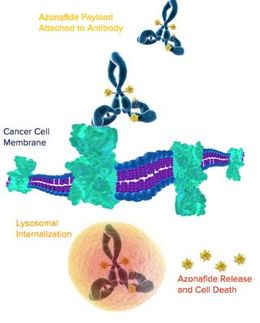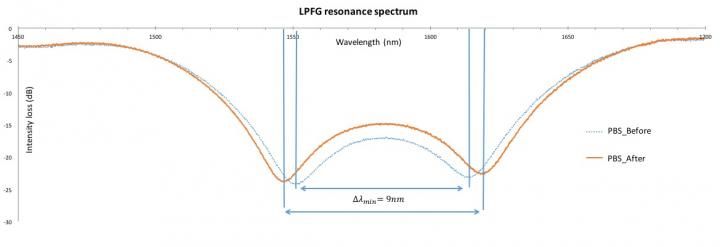Cancer identity technology makes it easier to find a tumor's 'address'
Purdue University researchers have developed a technology aimed at making it easier to deliver cancer treatment to the right "address" in the body while also easing the painful side effects of chemotherapy on patients.

Purdue University researchers developed a technique to prepare polyol-modified nanoparticles so they locate cancerous cells and tumors by checking out blood vessels surrounding the tumors.
Yoon Yeo/Purdue University
One of the big issues with chemotherapy is that most treatment approaches focus on the tumor itself without paying significant attention to the microenvironment surrounding the tumor.
"The traditional approach is similar to a delivery driver trying to drop off a package to a certain person without knowing their specific address," said Yoon Yeo, a professor of industrial and physical pharmacy at Purdue, who is leading the research team. "Our new approach provides directions to find the specific address to deliver the chemotherapeutic drugs."
The Centers for Disease Control and Prevention reports that each year, about 650,000 cancer patients receive chemotherapy in an outpatient oncology clinic in the United States. Patients receiving chemotherapy are at risk for various side effects that may lead to hospitalization, disruptions in chemotherapy schedules, and even death.
The Purdue method uses nanoparticles, which are considered promising carriers of drugs needed for chemotherapy to target tumors. The researchers developed a technique to prepare polyol-modified nanoparticles so they locate cancerous cells and tumors by checking out blood vessels surrounding the tumors.
The nanoparticles then interact with the vascular lining to enter tumors and destroy them. The Purdue researchers said their method helps the nanoparticles to exit from the circulation and enter tumors and better treat the cancer. They have tested the method on breast cancer and melanoma models and believe it also will prove effective for many types of cancerous tumors.
"Chemotherapy can be almost unbearable for most patients and we want to change that," Yeo said. "Our method better targets tumors so lower dosages are required and the drugs do less damage to normal tissues."
Original publication
Most read news
Original publication
Jun Xu, Steve Seung‐Young Lee, Howon Seo, Liang Pang, Yearin Jun, Ruo‐Yu Zhang, Zhong‐Yin Zhang, Pilhan Kim, Wooin Lee, Stephen J. Kron, Yoon Yeo; "Quinic Acid‐Conjugated Nanoparticles Enhance Drug Delivery to Solid Tumors via Interactions with Endothelial Selectins"; Small; 2018
Topics
Organizations
Other news from the department science
These products might interest you

Eclipse by Wyatt Technology
FFF-MALS system for separation and characterization of macromolecules and nanoparticles
The latest and most innovative FFF system designed for highest usability, robustness and data quality

DynaPro Plate Reader III by Wyatt Technology
Screening of biopharmaceuticals and proteins with high-throughput dynamic light scattering (DLS)
Efficiently characterize your sample quality and stability from lead discovery to quality control

Get the life science industry in your inbox
By submitting this form you agree that LUMITOS AG will send you the newsletter(s) selected above by email. Your data will not be passed on to third parties. Your data will be stored and processed in accordance with our data protection regulations. LUMITOS may contact you by email for the purpose of advertising or market and opinion surveys. You can revoke your consent at any time without giving reasons to LUMITOS AG, Ernst-Augustin-Str. 2, 12489 Berlin, Germany or by e-mail at revoke@lumitos.com with effect for the future. In addition, each email contains a link to unsubscribe from the corresponding newsletter.




















































